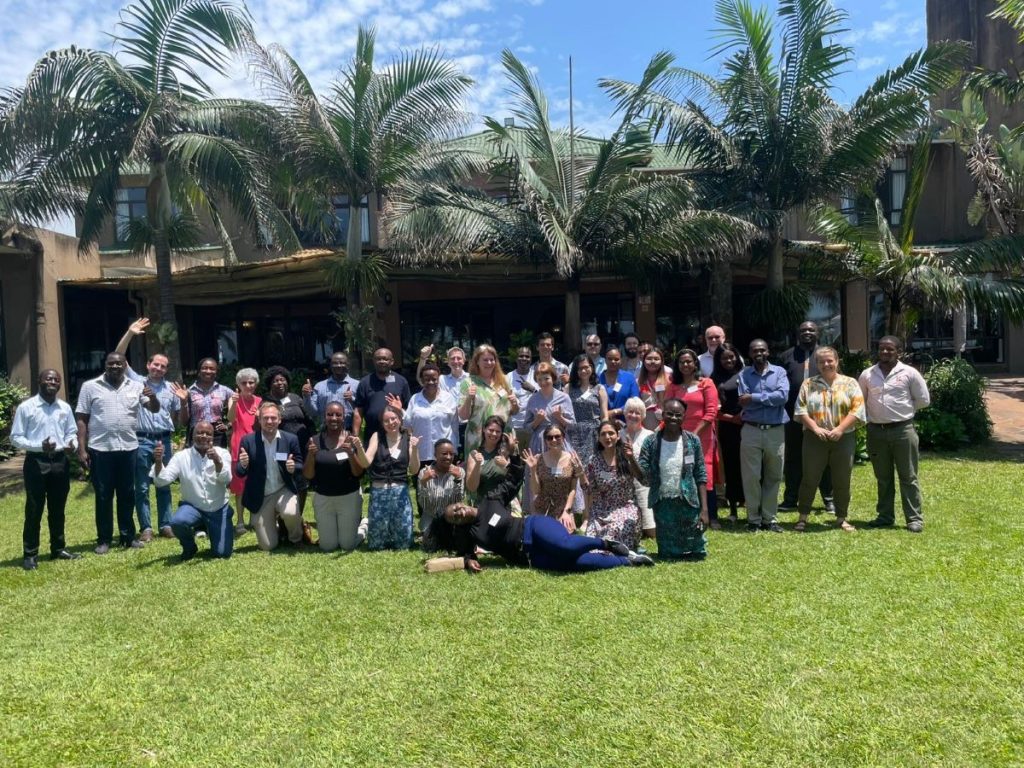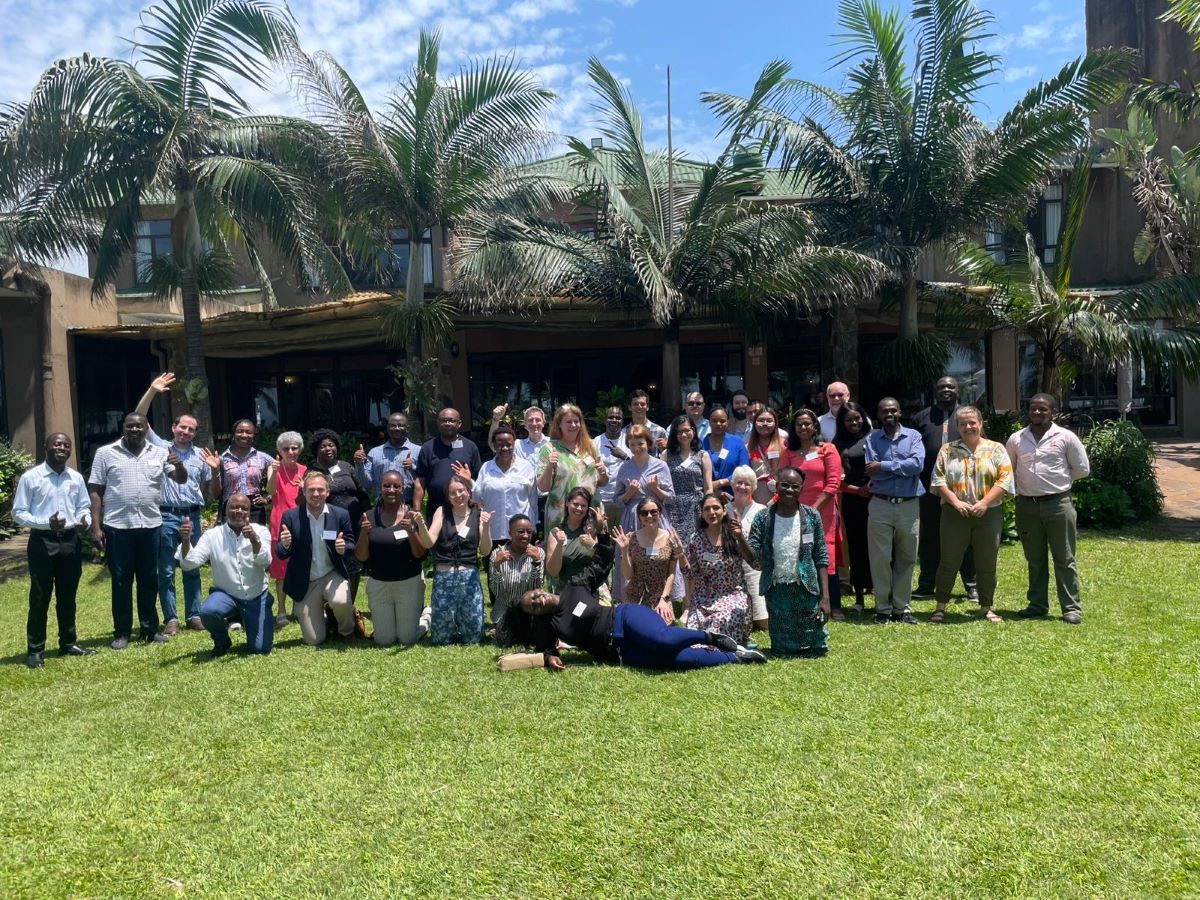In January, we held our first multinational TEA@SUNRISE symposium on Exploring the International Opportunities for Addressing Energy Access by Bringing Next Generation Solar Technologies to Market. Hosted by the University of KwaZulu-Natal (UKZN) in South Africa, we had attendees joining both in-person and online from over twelve countries. PhD students Favour Ibezim and Panagiotis (Panos) Chatziangelakis report on the event.
Introduction
Energy inequality continues to hamper socio-economic growth in many African nations, where millions lack reliable access to electricity. Traditional energy sources are costly, environmentally damaging, and dependent on external supplies, making them unsustainable. The TEA@SUNRISE Symposium, held in Durban, South Africa, was organized to address these pressing challenges by fostering collaboration and knowledge exchange on inclusivity, sustainability, and technological innovation. The event aligned closely with the goals of the REACH-PSM project, which seeks to advance localized perovskite solar module (PSM) manufacturing to provide affordable, sustainable energy solutions across Nigeria, Rwanda, Kenya, and South Africa.
A crucial supporter of this initiative is the UNESCO Chair in Sustainable Energy Technologies, which plays a pivotal role in driving innovation and research in sustainable energy technologies. By supporting projects like REACH-PSM, the UNESCO Chair fosters international collaboration, enhances local capacities, and ensures that scientific advancements contribute directly to addressing global energy challenges.
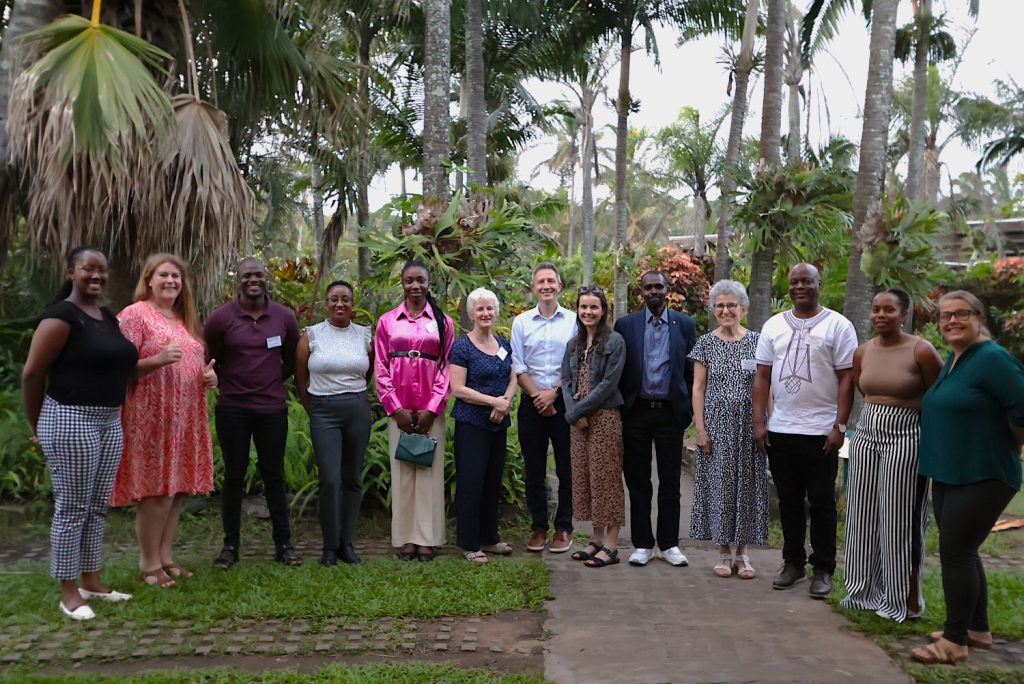
Day 1: Setting the Stage
The symposium commenced on Sunday, 19th January, with an opening address by Professor Olatunde Olatunji (UKZN, South Africa), who set the scene for a week of insightful discussions.
Talks were grouped into seven themes: ‘Inclusivity’, ‘Sustainability’, ‘Near-commercial Manufacturing for TEA (Transforming Energy Access)’, ‘New Processes for Production Breakthroughs,’ ‘Testing and Stability’, ‘Suitable Business Models’, and ‘Policy and Regulation.‘ The range of themes, all of which are essential to transforming energy access, helped encourage collaborations and knowledge sharing across different disciplines.
From the very first day of the conference, being Monday 20th January, valuable perspectives were shared featuring particularly interesting contributions such as from Professor Matthew Davies (UNESCO Chair, Swansea University UK) who spoke under the ‘Inclusivity’ theme and provided profound insights into the importance of designing solar modules that fit into a circular economy. Professor Bice Martincigh along with Professor Vincent Nyamori (UKZN, South Africa), who presented on the ‘Sustainability‘ theme, are conducting remarkable research on replacing finite resources with sustainable carbon-based nanomaterials. Professor Robert Hoye (University of Oxford, UK) also delivered an insightful presentation on new production processes for thin-film photovoltaics.
It was good to hear that e-waste treatment is underway in Africa. Dr Mark Williams-Wynn from EWaste Africa discussed the amazing work they are doing and the challenges faced in the industry. Later in the week, conference attendees had the opportunity to visit their site and see their pavers made from recovered glass from recycled solar panels. It was great to see real, impactful actions being carried out, and there is anticipation for more industries to emerge in support of a circular economy in Africa.
The second session, chaired by Nonjabulo Ngidi, covered discussions under ‘Testing and Stability’ (Dr Celline Awino, Masinde Muliro University Kenya), ‘Suitable Business Models’ (Léandre Berwa, SLS Energy, Kigali), and ‘Sustainability’ (Ncedo Ntsabo, Qombe Maize and Projects). Ncedo’s presentation told the impressive story of how he set up Qombe Maize to ensure a stable food supply for his community during the COVID-19 pandemic, using modern agricultural practices to optimise yield.
The day concluded with a site visit to LIV Village Durban, highlighting real-world applications of sustainable technologies when community engagement is at the core of operations.
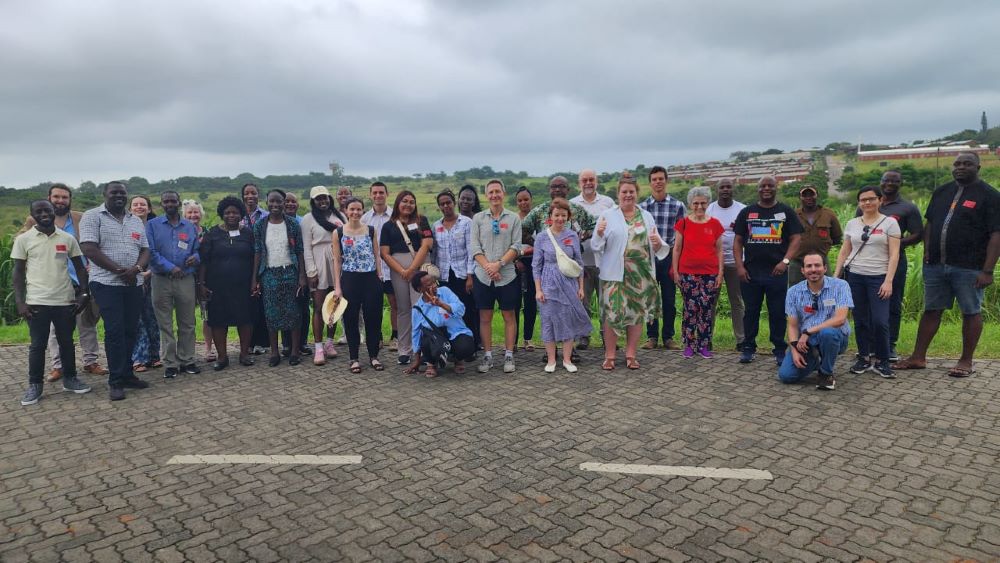
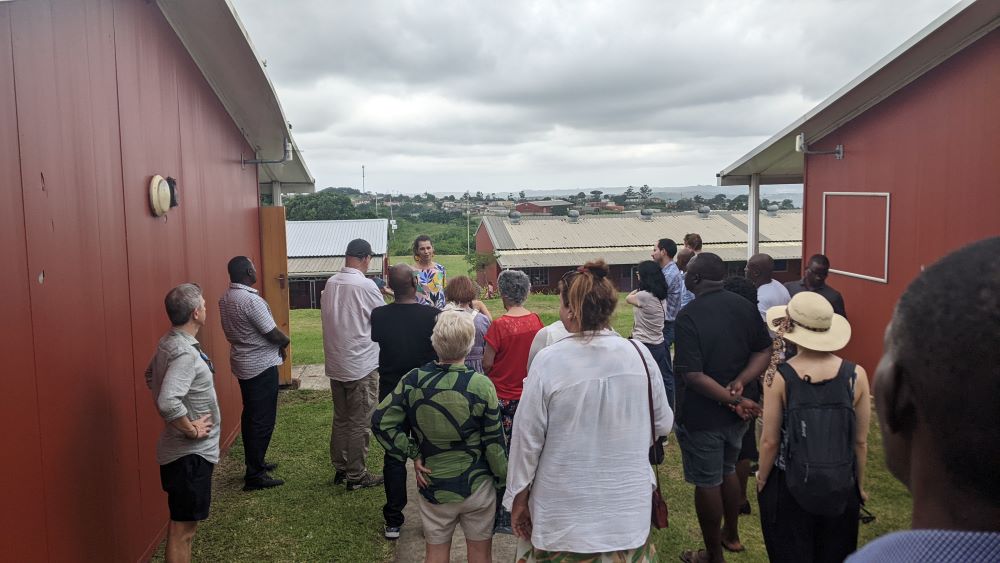
Day 2: Sustainability – A Shared Responsibility For All
On Tuesday, discussions delved deeper into sustainability and manufacturing feasibility, with the first session chaired by Rodrigo García Rodríguez. The morning featured talks from Professor Norasikin Ludin (Universiti Kebangsaan, Malaysia) who presented on ‘Sustainability’, followed by insights into ‘Near-commercial Manufacturing for TEA’ from Dr Francis Otieno (Maseno University, Kenya), and Professor Omowunmi Mary Longe (University of Johannesburg, South Africa). Professor Omowunmi emphasised that energy should be both affordable and reliable, and highlighted her work on electromobility. Her talk demonstrated that energy access transformation spans multiple disciplines and requires considerable collective effort. To finish the first session, Professor Emeka Oguzie from the Federal University of Technology Owerri, Nigeria, delivered a talk addressing the all-important topic of ‘Inclusivity’.
The second session, chaired by Shruti Saroj, covered talks on ‘Testing and Stability’ (Professor Petra Cameron, Bath University, UK), ‘Near-commercial Manufacturing for TEA’ (Professor Trystan Watson, Swansea University, UK), and ‘Policy and Regulation,’ (Alice Goodbrook and James Coombs O’Brien, Innovate UK, UKRI).
The afternoon concluded with site visits to UKZN and the aforementioned EWaste Africa, allowing participants to witness research in action. Conference attendees who visited the UKZN laboratories received training solar cell manufacturing, while visitors to EWaste Africa saw their recycling facilities first-hand.
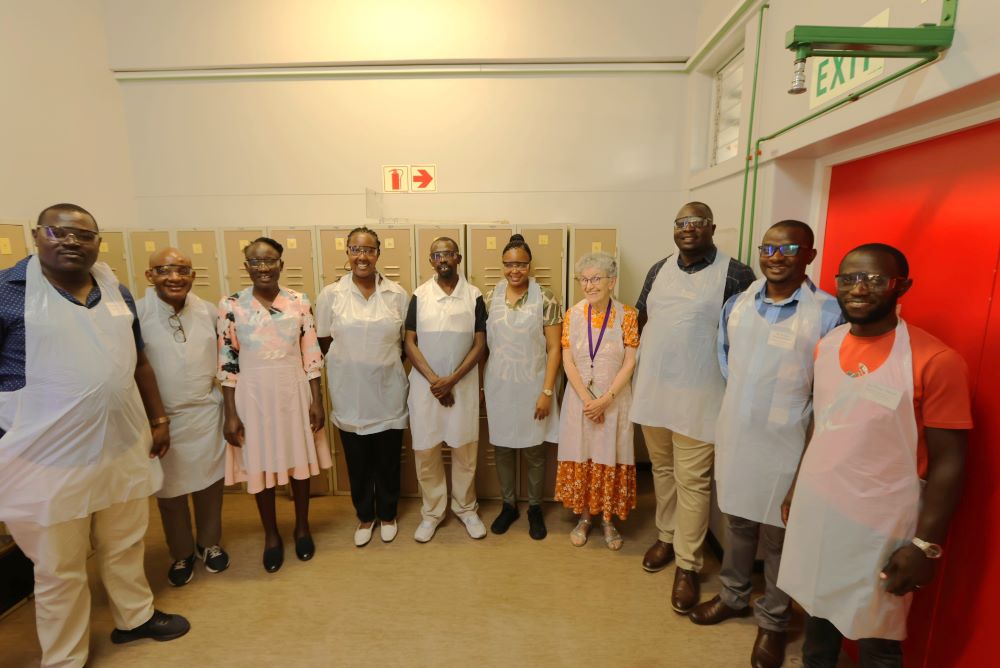
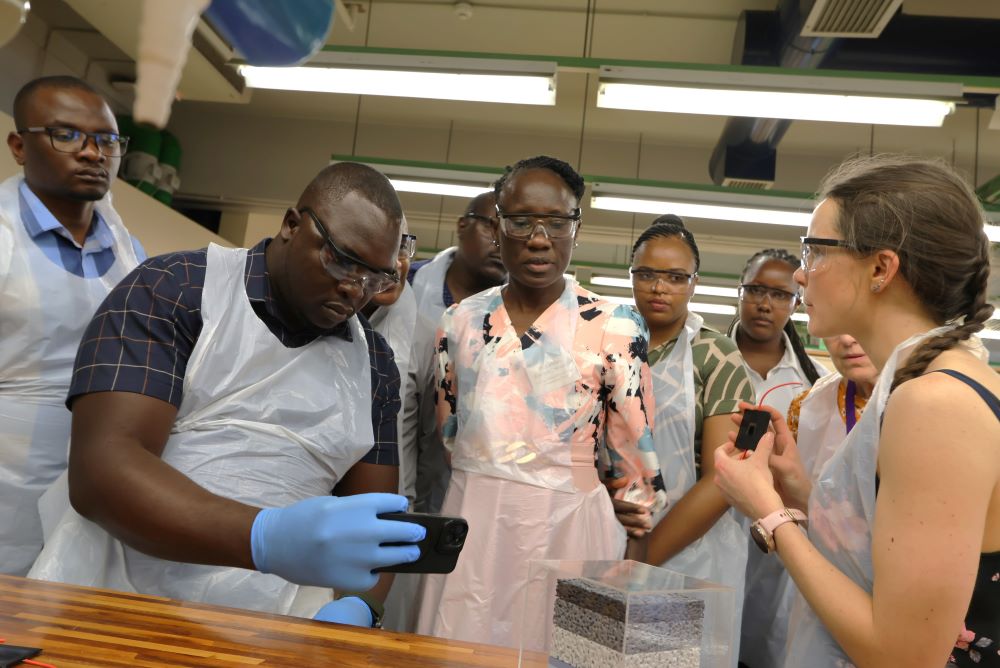
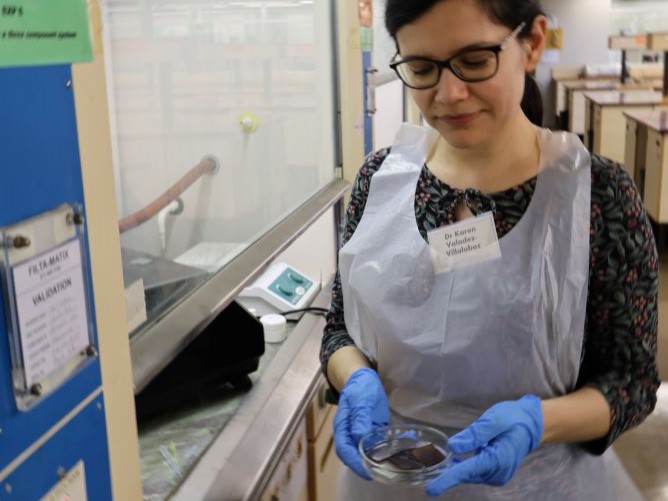
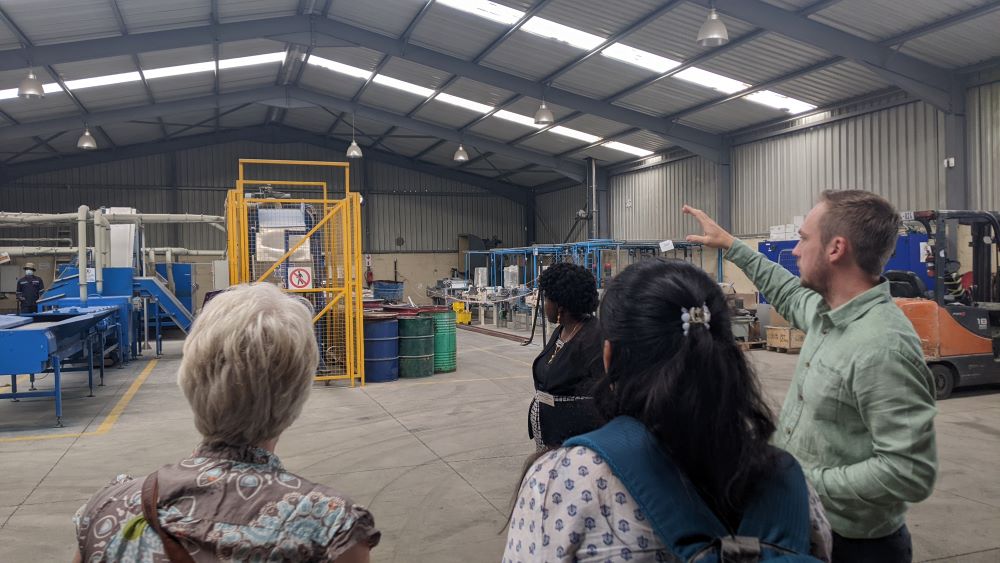
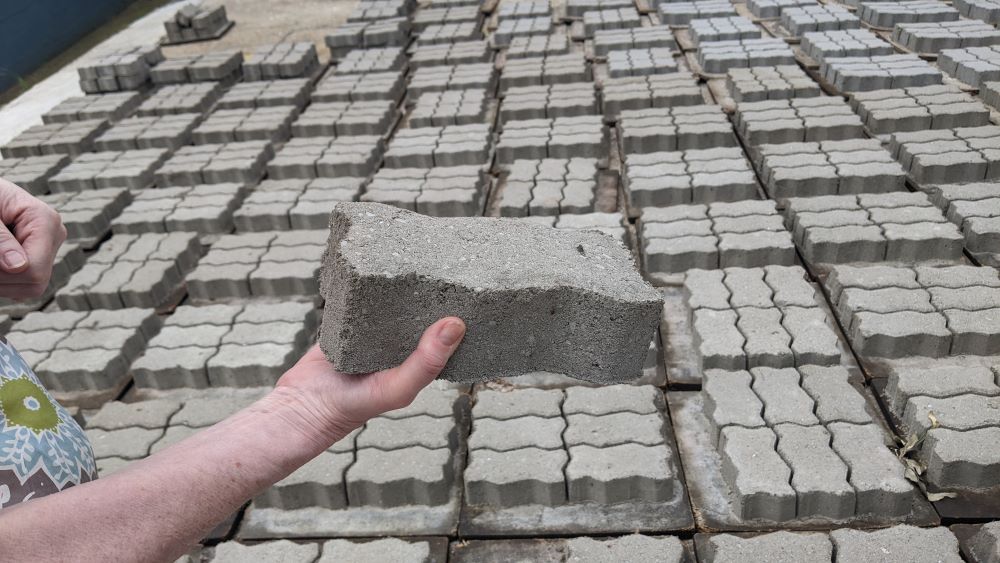
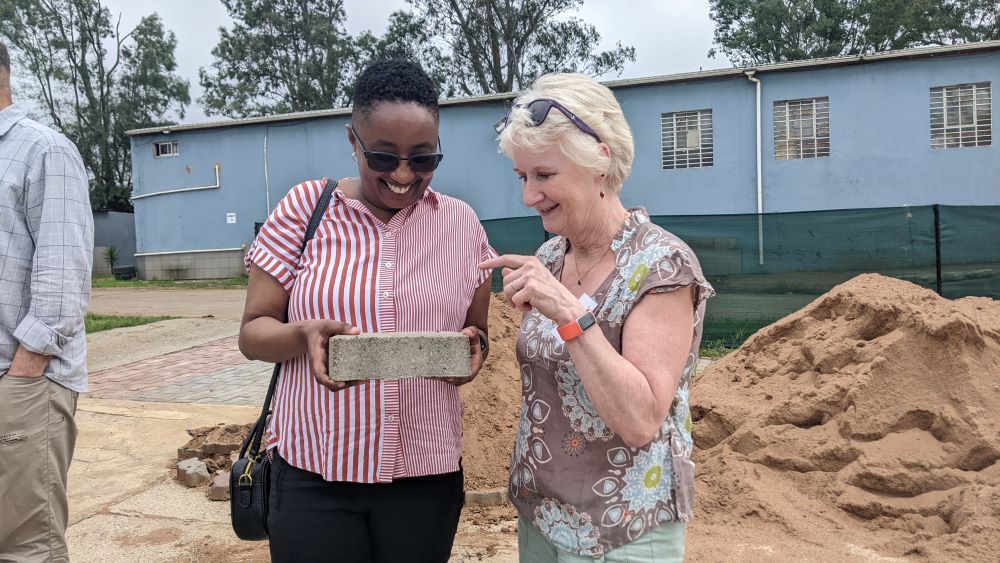
Day 3: Networking and Collaboration
Wednesday was dedicated to networking and site visits, fostering collaborations between researchers and industry stakeholders. A visit to the Hluhluwe-iMfolozi Park was in order, where the international attendees had the opportunity to observe and appreciate the beauty of South Africa’s wildlife; as well as take up the opportunity to further foster discussions outside the conference setting.
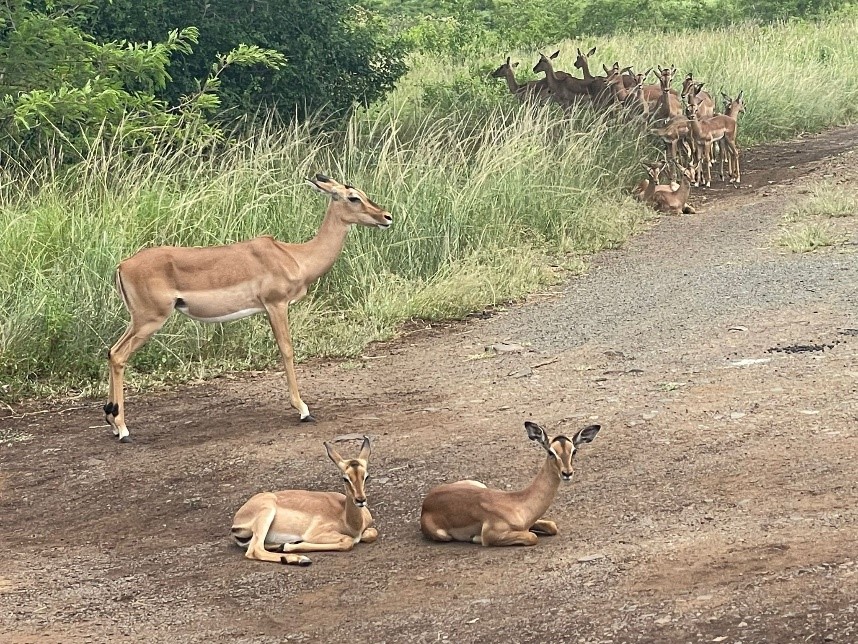
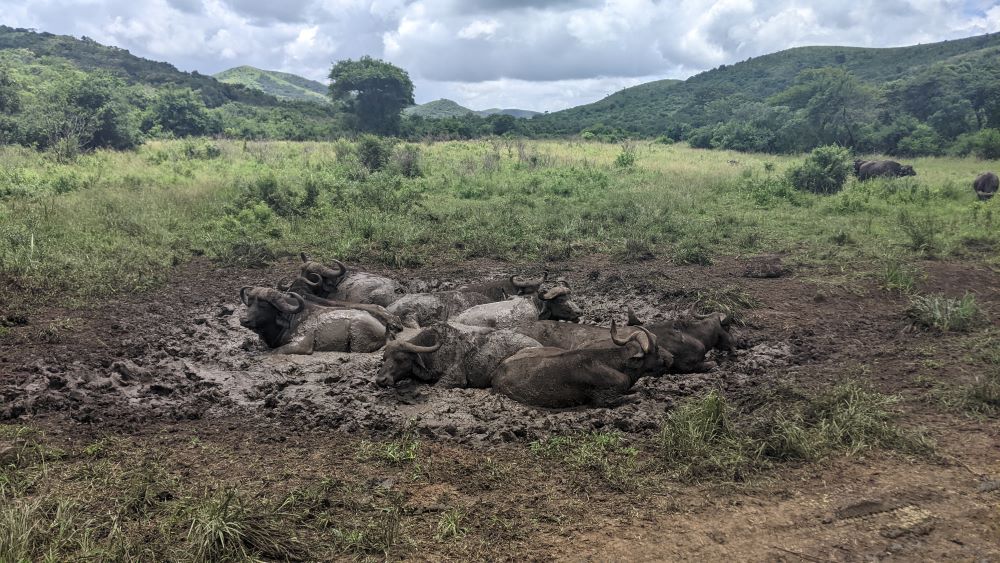
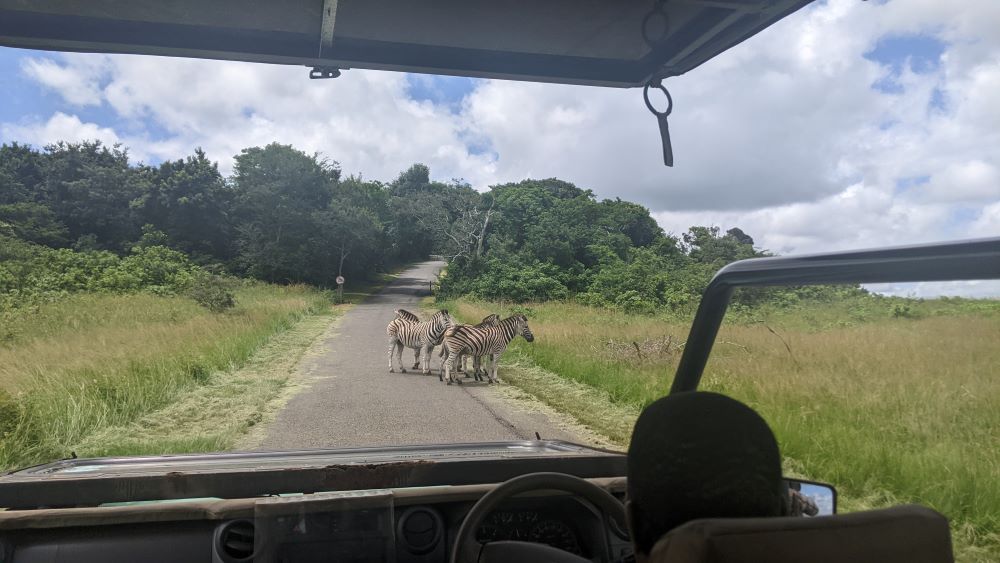
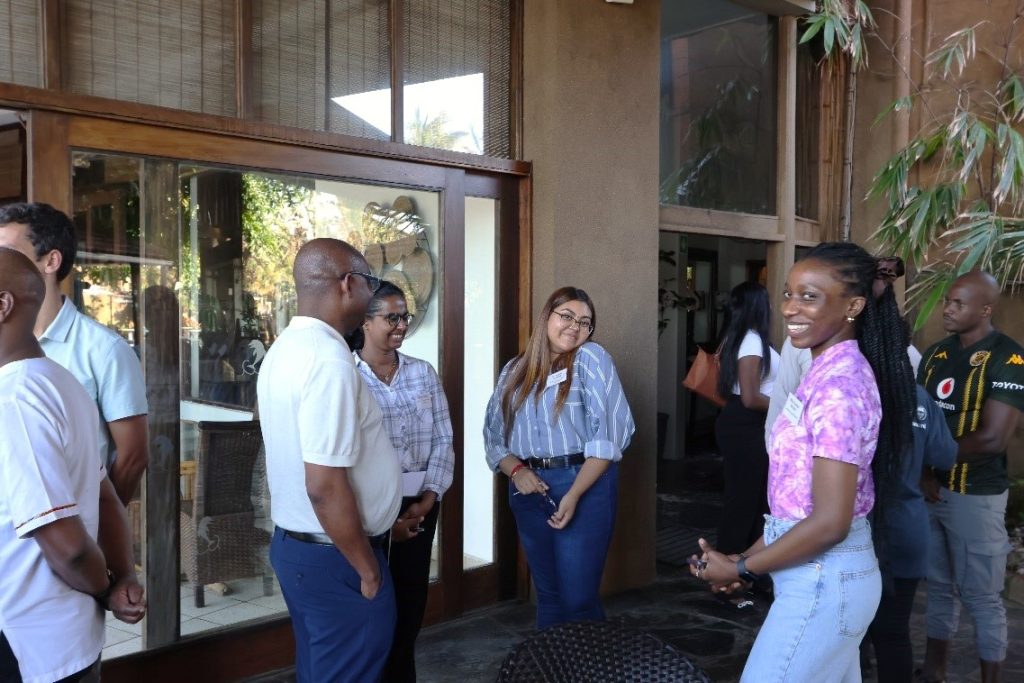
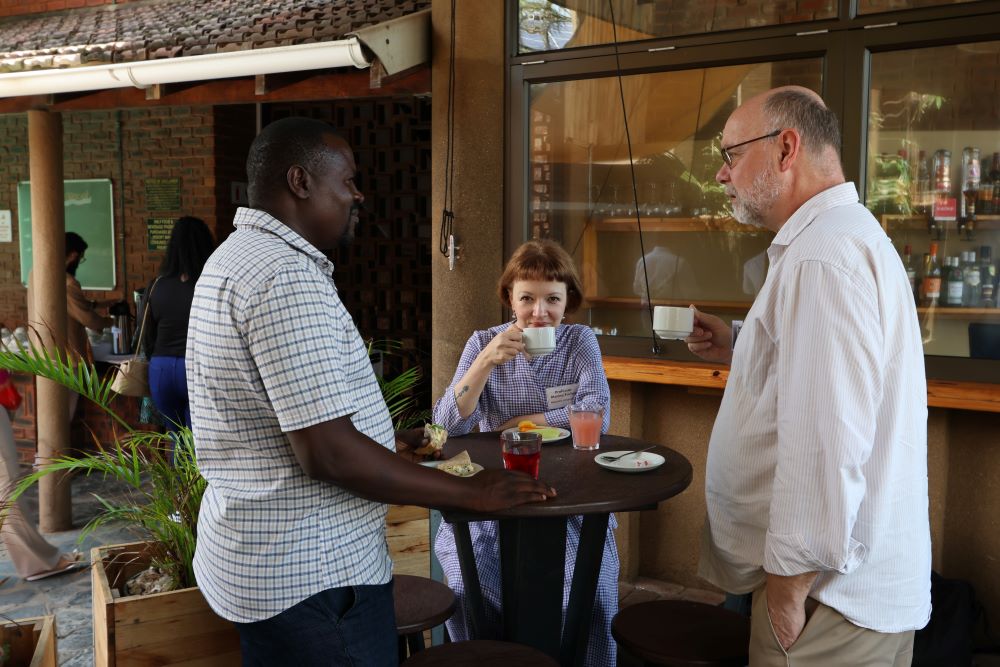
Day 4: Innovations, Business Models, and a Bottom-up Approach
On Thursday, efforts to make solar energy solutions accessible for people with disabilities were discussed under the ‘Inclusivity’ theme. Pollyanna Wardrop and Bala Nagendran from the Global Disability Innovation Hub presented on the higher energy poverty risks faced by women with disabilities in South Africa. They also highlighted SELCO’s work integrating solar energy with assistive devices like solar-powered tricycles and wheelchairs, a crucial step toward a Just Energy Transition.
Dr Carol Maddock (Swansea University, UK), the Community Involvement Lead for TEA@SUNRISE, spoke about how energy transitions are socio-technical processes that vary across cultures and contexts. She stressed the importance of involving marginalised groups in decision-making and highlighted some public engagement strategies, such as interviews, workshops, and focus groups, to better understand people’s needs and promote context-driven technologies from a bottom-up approach.
Under the ‘Sustainability’ theme, Adrian Clews (Hinckley Recycling, Nigeria) discussed the challenges he and his team face in recycling lithium-ion batteries, particularly the high costs involved and the need for incentives to prevent operating at a loss. Their work also includes efforts to formalize the informal recycling sector, and they have developed power packs from second-life batteries, benefitting small business owners.
Kinya Kimathi (Kijani Testing Limited, Kenya) presented on ‘Testing and Stability, discussing the importance of testing to build trust in the solar market. She pointed out the challenges of varying product quality, limited data availability, and the influx of lower-tier products in Africa due to informal selection. Her work focuses on ensuring that testing is done to ensure quality, trust, and protect consumers from subpar products.
The afternoon sessions, chaired by Favour Ibezim, covered talks on ‘New Processes for Production Breakthroughs’ (Professor Joshua Kibet, Egerton University, Kenya), ‘Suitable Business Models’ (Professor Askwar Hilonga, Gongali Model Co Ltd, Tanzania). Augusta Njogo and Anne Wacera Wambugu from Strathmore University, Kenya, talked about how policies and regulations can affect deployment and implementation of new technologies, and how work needs to be done to make goods more accessible to local markets.
Later, presentations included Khushboo Ahire (Tata Institute of Social Sciences, India) on ‘Inclusivity’, Dr Ross Dix-Peek (Energ-G-Africa, South Africa) on ‘Sustainability’, and Dr Carys Worsley (Swansea University, UK) on ‘Near-Commercial Manufacturing for TEA’. Dr Carys’ talk pointed out the benefits and challenges of specific solar modules nearing commercialisation, emphasising the significant efforts being made to overcome technical challenges and bring them to market.
We also heard from Professor Nutifafa Doumon and Dr Ivy Asuo (Pennsylvania State University, US), and Professor Gerko Oskam (Universidad Pablo de Olavide, Spain) on ‘Testing and Stability’ and ‘New Processes for Production Breakthroughs’ of solar cells. Finishing off the session were Professor Jiska De Groot and Dr Ruth Massey (University of Cape Town, South Africa) on the topic of ‘Inclusivity’ and finally Professor Marina Freitag (Newcastle University, UK) on ‘Sustainability’.
The day ended with a symposium dinner, where attendees continued their discussions in a more informal setting.
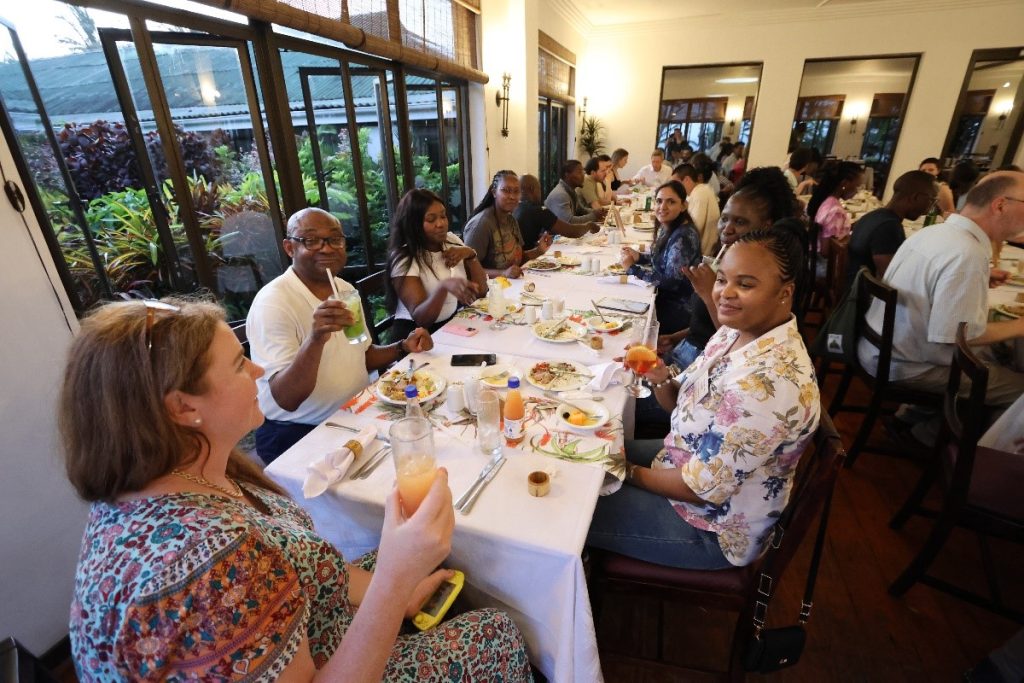
Day 5: The Future of TEA Research
The final day’s presentations emphasised ‘Suitable Business Models’ and ‘Policy and Regulation’. Professor Thea van der Westhuizen (UKZN, South Africa) led discussions on business models, while Professor Daniel Egbe (ANSOLE, Germany) explored cross-cutting themes. Associate Professor Daniel Wamwangi (University of Witwatersrand, South Africa), and Professor Patrick Ndungu (University of Pretoria, South Africa) also contributed meaningfully to this session.
Later sessions included presentations on ‘New Processes for Production Breakthroughs’ and ‘Sustainability,’ featuring experts from Imperial College London (Professor Jenny Nelson and Benedict Winchester). It was also packed with meaningful contributions from Hilton Chingosho (University of Zimbabwe), Dr Victor Odari (Masinde Muliro University of Science and Technology, Kenya), Professor Mmantsae Diale (University of Pretoria, South Africa), Professor Tabitha Amollo (Egerton University, Kenya), Dr Tonderai Mombeshora (University of Pretoria, South Africa), Dr Nonjabulo Ngidi (Durban University of Technology, South Africa), Dr Samantha Ndlovu (UKZN, South Africa), and Dr Thembinkosi Malevu (North-West University).
The event concluded with presentations from PhD students, including Ms Favour Ibezim from Swansea University, Ms Shruti Saroj and Ms Dipika Gobind from UKZN, and Mr Panagiotis Chatziangelakis from Swansea University. Their contributions showcased the remarkable potential of the next generation of researchers.
One of the attendees, Hilton Chingosho, said of the event:
“I had the pleasure of attending and presenting at the TEA@SUNRISE symposium at the Salt Rock Hotel in Ballito. The event attracted a diverse group of participants, including researchers, innovators, and energy stakeholders. Over the course of five days, we delved into the latest research progress on next-generation solar technologies, with a focus on the role of perovskites in expanding and improving energy access across the Global South. The symposium was a hub of intellectually stimulating discussions, thanks to the diverse mix of deep-tech scientists, engineers, and development practicioners in attendance. These discussions led to incredible skills transfer, knowledge sharing, and the synthesis of new ideas. As I reflect on this experience, I feel empowered and eager to apply the insights gained to my work, ensuring that our efforts in energy access leave no one behind.
“The symposium’s setting also provided a unique opportunity for attendees to unwind and enjoy the Indian Ocean shore and beach after intense sessions – a perfect blend of work, learning, and leisure. I would like to extend my heartfelt gratitude to the team at TEA@SUNRISE, Swansea University, project manager Dr Mark Spratt, and the principal investigator Professor Matthew Davies for organising this outstanding event. It was also a pleasure to reconnect with old friends and colleagues from the greater Transforming Energy Access Learning Partnership (TEA-LP).”
Hilton Chingosho
Battery Ambassador for Zimbabwe – The Faraday Institution
National Energy Auditing Specialist Consultant – Africa Development Bank
Energy Auditing Expert Consultant – IRENA
Capacity Building and Skills Development Consultant – UNCTCN
Lecturer and Researcher – University of Zimbabwe
Conclusion
The TEA@SUNRISE symposium underscored the urgent need for localised, inclusive, sustainable, and cost-effective energy solutions, resonating with the objectives of the REACH-PSM project. The UNESCO Chair’s role in supporting innovative research and fostering global collaboration is instrumental in ensuring the success of this initiative. Participants left with a renewed commitment to advancing inclusivity, sustainability, and technological innovation. The discussions and partnerships formed in Durban will undoubtedly shape the future of TEA research and development, driving progress toward a more energy-resilient Africa.
A special thanks to our hosts UKZN for more opening the doors of their home to the old and new TEA@SUNRISE members, with the expected outcome: longing to go back.
